9 Best Belly Fat-Melting Tips Experts Swear By
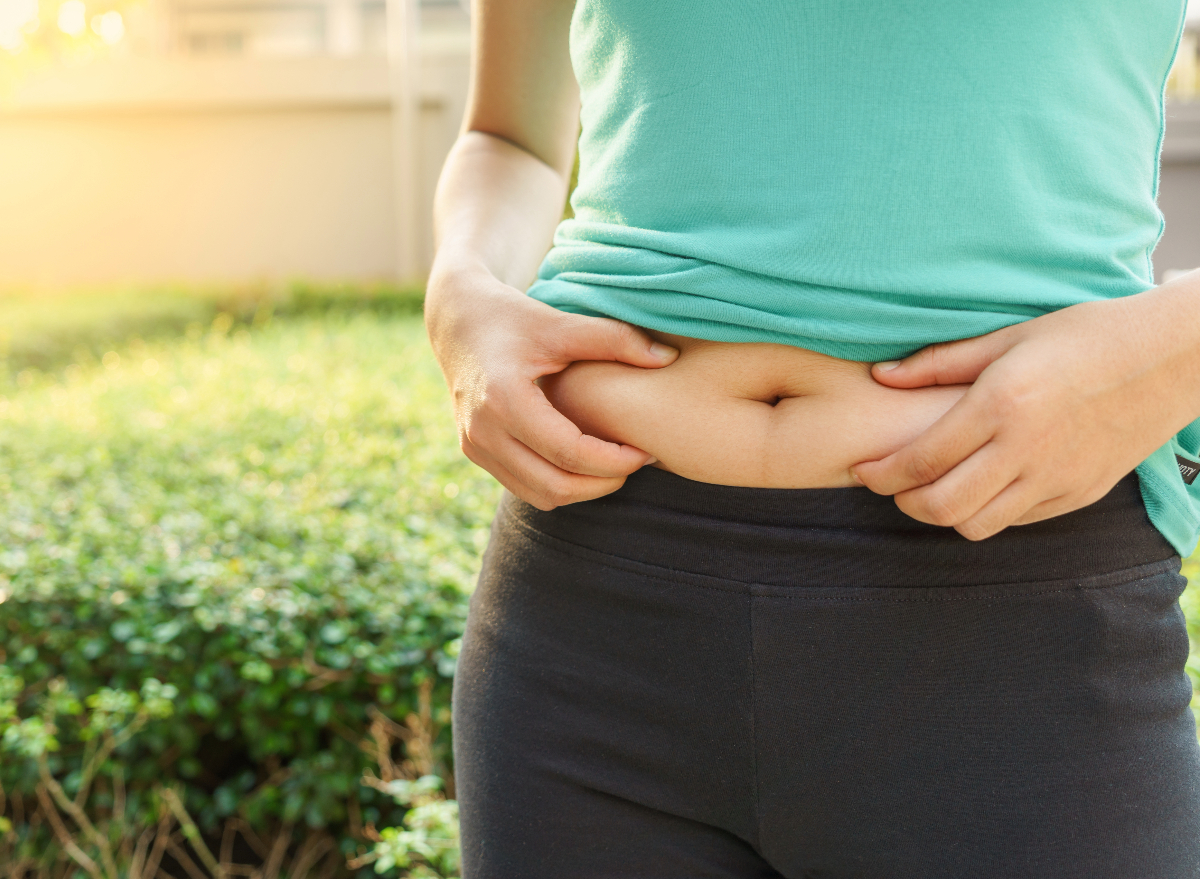
Real talk: Melting belly fat can be a real pain in the you-know-what. If you can relate, you're far from alone. An estimated 45 million Americans attempt to drop weight each year. And among them, only 54% keep the weight off long-term. But don't let that discourage you. The good news is that there's no magic solution to sustainable weight loss, just healthy lifestyle factors based on good nutrition and fitness habits. So, if you're committed to kicking your belly fat to the curb and unveiling a fitter version of yourself, you've landed in the right place. We spoke with the pros who share nine of the best belly fat-melting tips to keep handy.
Tracie Haines-Landram, CSCS, a certified strength and conditioning specialist and nutrition coach with Barbend, tells us, "The basics are there for a reason. They set the foundation and framework for achieving your fitness goals. When it comes to melting belly fat and creating a leaner physique, there are basics rooted in exercise and habits."
In this article, we chatted with health experts who delve into the nine fundamental principles of shrinking your waistline for good. No more fad diets or weight loss hacks, just simple and sustainable basics to set you on the path to a healthier, more confident version of yourself. Read on to learn more about nine belly fat-melting tips, then check out the 10 Best Resistance Band Exercises for a Slimmer Stomach.
Spice up your diet.
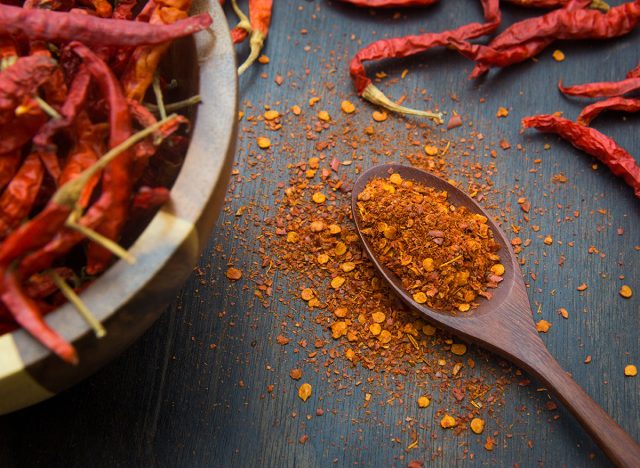
Spicy foods like chili peppers and spices contain capsaicin, which can increase calorie burning and ramp up your metabolism to help curb your appetite, according to a 2022 review.
"Incorporate spicy foods like chili peppers and cayenne pepper into your diet," says Trista Best, RD, a registered dietitian with Balance One Supplements. "These foods contain capsaicin, a compound that can temporarily boost metabolism and increase calorie burning, potentially aiding in the reduction of abdominal fat."
Eat probiotic-rich foods.
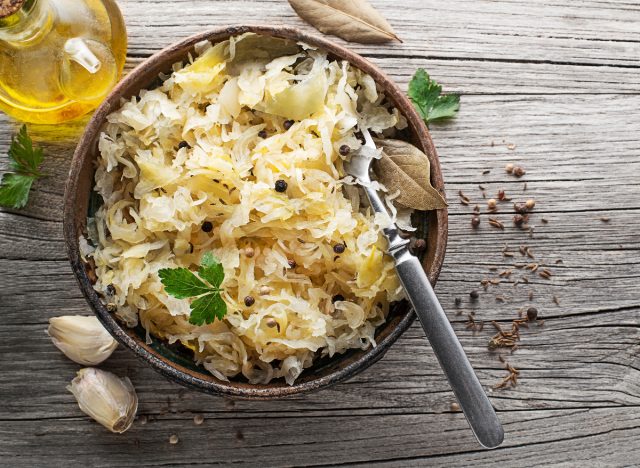
Research shows that gut health is closely connected to your weight management, and probiotic-rich foods can be your gut's best friends. Yogurt, kefir, sauerkraut, and kimchi are delicious options that can help promote a healthy gut flora, which might assist in stripping away abdominal fat.
"Include foods like yogurt, kefir, and sauerkraut in your diet. They contain probiotics that can promote a healthy gut microbiome, which has been linked to better weight management and reduced belly fat," explains Best.
Prioritize fiber.
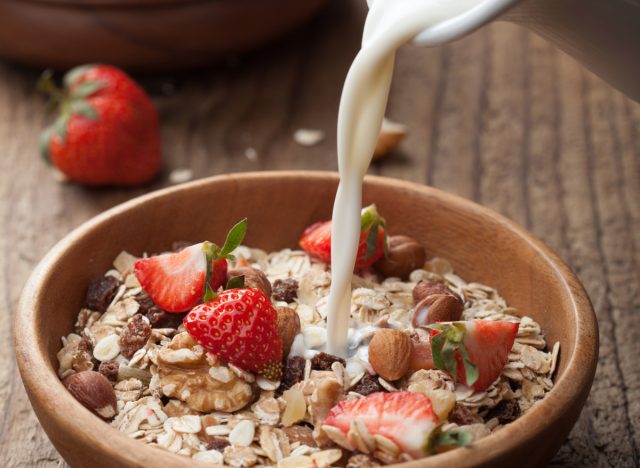
Fiber-rich foods like whole grains, oats, and legumes can keep you feeling full and satisfied, thereby reducing overeating. Plus, they help regulate your blood sugar levels, making it easier to shed those extra pounds.
"Opt for foods rich in soluble fiber, such as oats, flaxseeds, and legumes. Soluble fiber can help control appetite, reduce the absorption of calories, and promote a feeling of fullness, supporting belly fat loss," says Best.
Include omega-3 fatty acids.
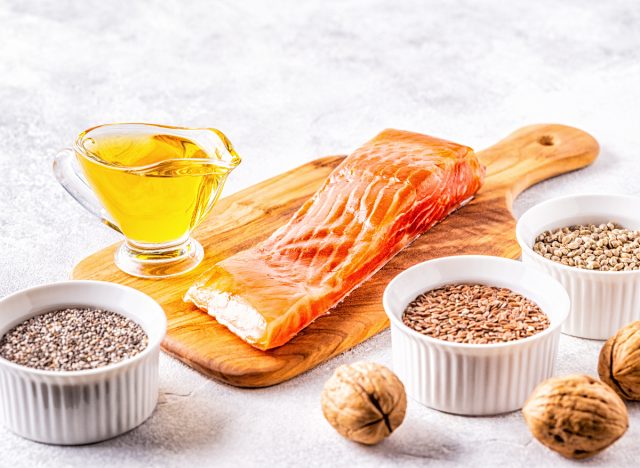
Not all fats are foes. According to a 2022 study, omega-3 fatty acids found in fatty fish like salmon, along with walnuts and flaxseeds, can assist in burning belly fat. These healthy fats have anti-inflammatory properties that can help you feel more satiated after a meal.
Best recommends, "Consume foods high in omega-3 fatty acids, like fatty fish and walnuts. Omega-3s may reduce inflammation and reduce abdominal fat and inflammation."
Eat your green veggies.
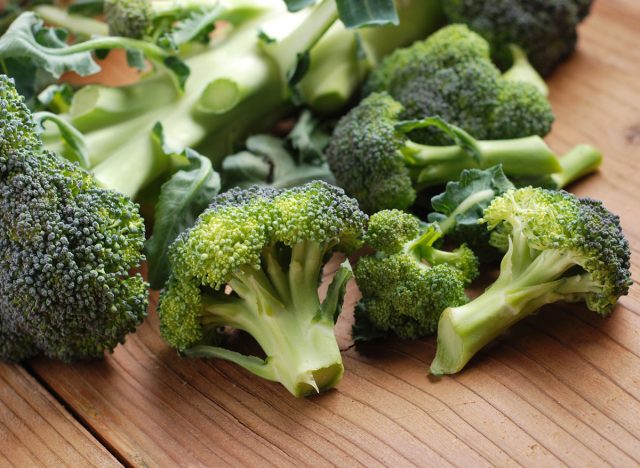
Mom was right when she told you to eat your greens. Spinach, kale, and broccoli are packed with vitamins and minerals, and they're low in calories. Furthermore, a 2020 meta-analysis found that green salads boost fiber intake and were associated with body mass index reduction.
"Green vegetables are low in calories and high in nutrients, making them excellent choices for a diet focused on reducing belly fat. They're also packed with antioxidants that support overall health," says Best.
Move your body daily.

Regular physical activity, whether walking, dancing, or hitting the gym, is crucial for burning calories and toning your midsection. According to a 2013 study, individuals who worked out more than 200 minutes a week lost significantly more weight than those who exercised less.
"One of the driving factors of fat loss is being in a consistent calorie deficit over time," states Haines-Landram. "That's why it's important to ensure you're meeting the minimum physical activity guidelines set forth by the Centers for Disease Control and Prevention by engaging in 150 minutes of moderate-intensity physical activity per week."
Reduce or eliminate alcohol.
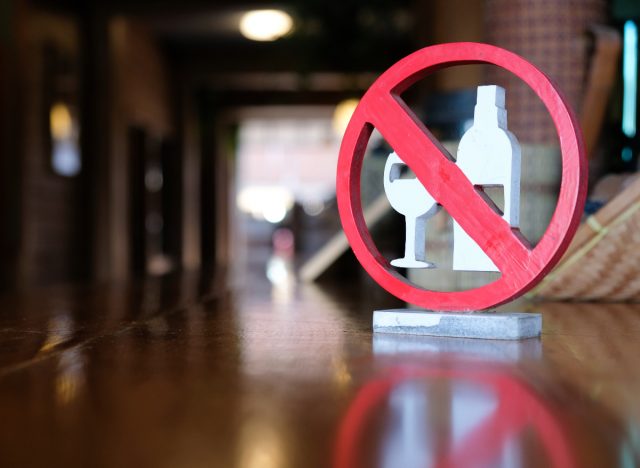
While the occasional glass of wine can be enjoyable, be mindful that too much alcohol can sabotage your belly-fat-fighting efforts. "Not only does alcohol have more calories per gram than carbohydrates, but it's also metabolized differently than food and temporarily reduces the breakdown of fat, and has a negative effect on sleep," explains Haines-Landram.
Practice proper sleep hygiene.

Quality sleep plays a significant role in weight management. Getting enough restful sleep nightly helps regulate your appetite hormones and reduce stress. Plus, a well-rested body is more efficient at burning fat, so ensure you're getting those Z's.
"Research shows that not getting enough or poor quality sleep increases your risk of obesity. The National Institute of Health recommends seven to eight hours of sleep a day for adults," says Haines-Landram.
Manage stress.

Chronic stress can lead to weight gain, especially around your midsection. As a matter of fact, a 2018 study discovered that chronic stress boosts cravings for calorie-packed foods. When you're cool, calm, and collected, making healthy choices and keeping that belly fat in check can be much easier.
Haines-Landram says, "Chronic stress causes the body to release hormones like cortisol that can cause your body to increase blood sugar and appetite temporarily. When your body is in this state, it's less likely to burn body fat."
- Source: https://www.ncbi.nlm.nih.gov/pmc/articles/PMC6958313/
- Source: https://www.ncbi.nlm.nih.gov/pmc/articles/PMC9316879/
- Source: https://www.ncbi.nlm.nih.gov/pmc/articles/PMC5082693/
- Source: https://pubmed.ncbi.nlm.nih.gov/36193993/
- Source: https://pubmed.ncbi.nlm.nih.gov/35815739/
- Source: https://www.ncbi.nlm.nih.gov/pmc/articles/PMC7399879/
- Source: https://www.ncbi.nlm.nih.gov/pmc/articles/PMC3925973/
- Source: https://www.ncbi.nlm.nih.gov/pmc/articles/PMC9031614/
- Source: https://www.ncbi.nlm.nih.gov/pmc/articles/PMC6196958/
- Source: https://www.ncbi.nlm.nih.gov/pmc/articles/PMC6186388/









